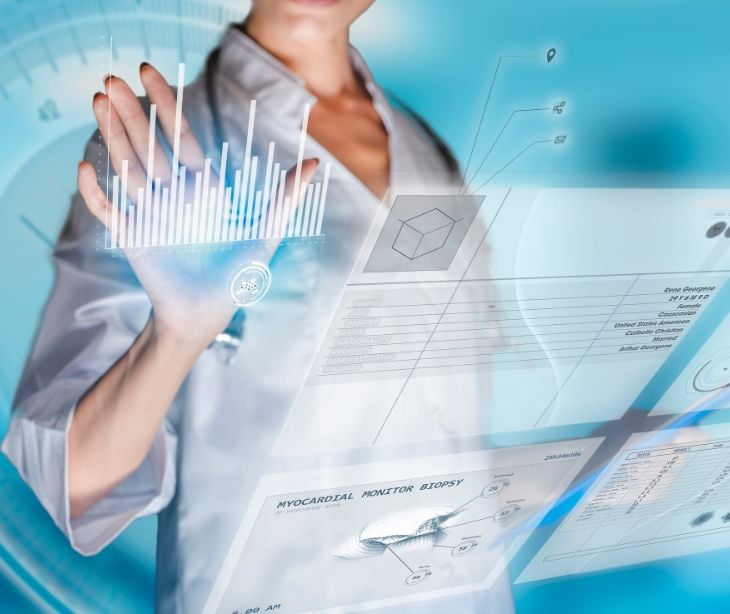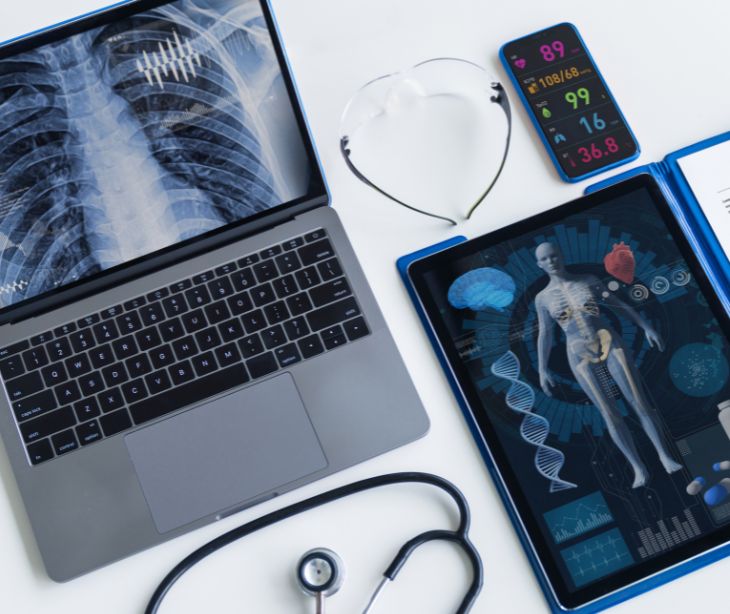
Healthcare customer relationship management (CRM) refers to software systems and technologies designed to manage interactions and relationships with patients, healthcare providers, and other stakeholders within the healthcare industry.
Fundamentals of healthcare CRM
Healthcare CRM is a centralized hub where patient information, communication, and administrative tasks converge. At its core, it’s a specialized software solution designed to facilitate:
Patient-centric approach
Healthcare CRM systems place patients at the center by enabling providers to gather and manage comprehensive patient data. From medical history and treatment plans to appointments and communications, it ensures a holistic view of each patient’s journey within the healthcare ecosystem.
Enhanced communication and engagement
CRM platforms empower providers to engage with patients through personalized interactions, whether it's appointment reminders, follow-ups, or sharing health-related information. This fosters a stronger patient-provider relationship and encourages active participation in one's healthcare journey.
Streamlined operations
Healthcare CRM systems optimize workflows by automating administrative tasks like appointment scheduling, billing, and data entry. This efficiency allows healthcare providers to allocate more time and resources to patient care, reducing wait times and improving overall service quality.
Features and functionalities
Patient data management
Healthcare CRM consolidates patient information into a single, accessible database. This includes medical history, demographics, appointment schedules, and communications, ensuring that providers have a comprehensive view of the patient’s health profile.
Appointment scheduling and reminders
Patients can easily schedule appointments online, and automated reminders help reduce no-shows. Providers, in turn, can manage their schedules efficiently, minimizing wait times and improving patient satisfaction.
Go deeper: Are appointment reminder emails HIPAA compliant?
Analytics and reporting
Robust CRM systems offer analytics tools that allow healthcare organizations to track patient trends, monitor outcomes, and assess the effectiveness of marketing strategies. Data-driven insights enable informed decision-making and optimization of healthcare services.
Marketing and engagement tools
Personalized communication through various channels, such as emails, messages, or patient portals, helps healthcare providers engage with patients more effectively. Targeted marketing campaigns and educational content sharing contribute to improved patient engagement.
Related: HIPAA compliant email marketing: What you need to know
Benefits of healthcare CRM
According to Mordor Intelligence, “the Global Healthcare CRM Market size is estimated at USD 18.31 billion in 2024, and is expected to reach USD 33.11 billion by 2029, growing at a CAGR of 12.58% during the forecast period (2024-2029).” So, what benefits do healthcare organizations gain that promote the expansion of the CRM market?- Improved patient experience: Enhanced communication and personalized care increase patient satisfaction and loyalty.
- Efficient operations: Automating administrative tasks streamlines workflows, reducing operational costs, and freeing time for healthcare providers to focus on patient care.
- Data-driven decision-making: Analytics and reporting functionalities provide valuable insights that aid in strategic planning, service improvement, and resource allocation.
- Enhanced care coordination: Seamless sharing of patient data and streamlined communication among healthcare professionals promote better collaboration and care coordination.
See also: Marketing Involving Protected Health Information (PHI)
FAQs
How does healthcare CRM differ from traditional CRM systems?
While traditional CRM systems are used across various industries to manage customer relationships and sales, healthcare CRM systems are specifically tailored for the healthcare industry. They address unique needs such as patient communication, appointment scheduling, follow-up care, and compliance with healthcare regulations.
Can healthcare CRM systems integrate with other healthcare technologies?
Yes, healthcare CRM systems can integrate with other technologies, such as electronic health records (EHRs), practice management systems, and telehealth platforms, to provide a comprehensive view of patient data and streamline workflows.
See also: Healthcare CRM vs EHR
What features should be considered when choosing a healthcare CRM?
Important features to consider include:
- Customization: Ability to tailor the system to specific needs.
- Integration capabilities: Ease of integrating with existing healthcare systems.
- User-friendly interface: Intuitive design for ease of use.
- Data security: Robust security measures to protect patient data.
- Analytics and reporting: Tools for data analysis and reporting.
Subscribe to Paubox Weekly
Every Friday we'll bring you the most important news from Paubox. Our aim is to make you smarter, faster.



